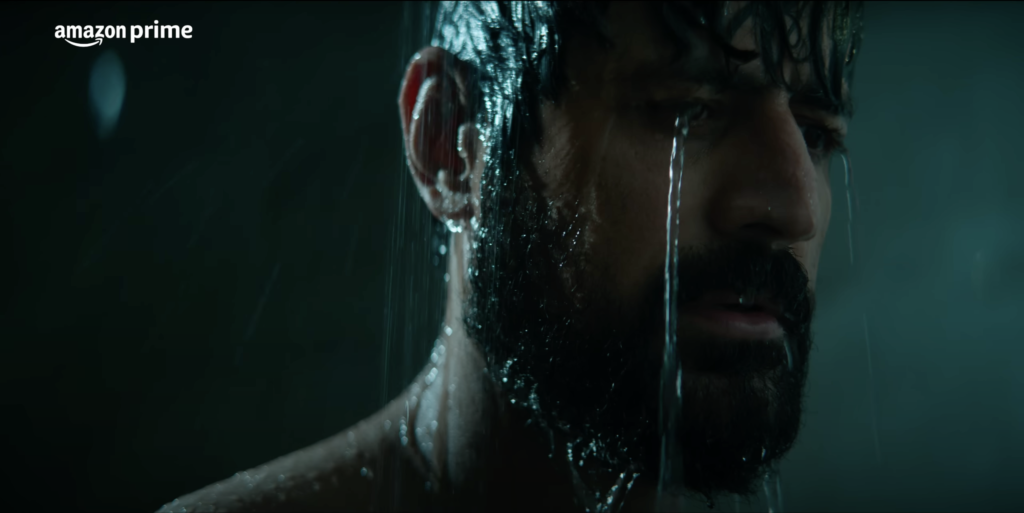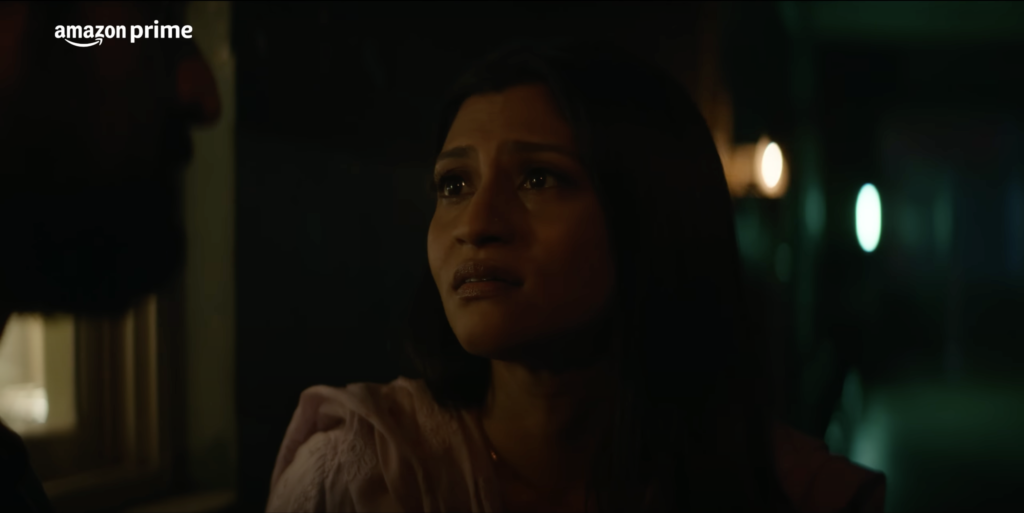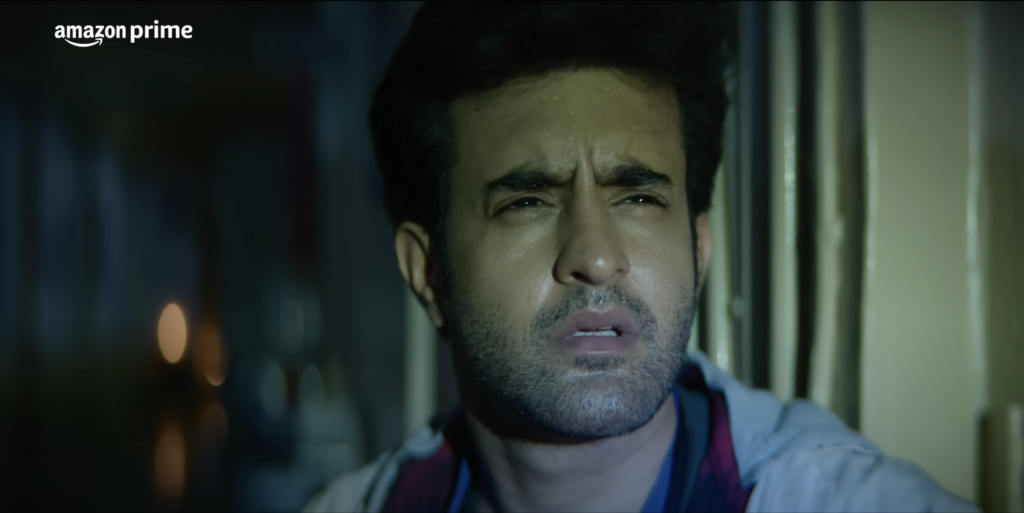Loneliness, fear and poverty are the biggest diseases. If either latches onto the other, what ensues is absolute pandemonium.
Mumbai Diaries S02 dives straight from the frying pan into the fire.
Seven months apart from the 26/11 attacks, the medical battalion at Bombay General Hospital is now doom-scrolling into the fangs of the infamous July floods of Mumbai. An unforgiving outpour that ripped the spirit of Mumbai into shreds. A ruckus ready to usurp the social and moral fabric of this hospital.
Season 2 of Mumbai Diaries puts a chokehold on the audience right from the word go. Alike logged waters, the tensile elements first leak in through the cracks to smash the fences wide open. The first season was about the doctors’ valor. This season is about their vulnerability.
Here the doctors are diseased and the common ailment is void. Each member of the hospital has a compulsion, a boundary they fail to overcome, until fate’s floodgates are let open. And once it rains, it pours. And pours. And pours.

Mohit Raina’s Dr. Oberoi is stacked with the baggage of guilt and unrest. In a world where water wreaks havoc, paranoia runs Dr. Oberoi’s world dry.
Mrunmayee Deshpande and Natasha Bharadwaj get author-backed roles this time as their characters swim against the current of fate for self actualisation and self-discovery. Just like logged waters become natural habitats to leeches, the bangarang state of affairs in Bombay General Hospital favour as breeding ground for the vindictive, nefarious yet competent Dr. Saurav Chandra, essayed with all the evil gusto and cinematic droop by Parambrata Chatterjee.
You want to punch his face six inches into his head. The sly mofo act is that convincing.
It was heartwarming and fulfilling to see Prakash Belawadi and Shreya Dhanwantry’s characters do the heavy lifting of reprisal, reconciliation and reconditioning of self, with a screenplay that balances inventiveness and social commentary like butter on a knife. This season is wired with moments to reflect, relate and yet reel for more.
In a tale of woe that brought the city to a stand still, Malay Prakash’s direction of cinematography is spellbinding. Quite possibly The Invisible Nurse, his camera takes you straight into the action, this time penetrating deeper into the psyche and perils of the humane.
It gets you closer to this medley of tales about empaths, divided by class and creed but united by chaos. Every unavailable ER makes your heart pound with panic. A possible outbreak clinches your nerves and an impending pregnancy pulls a theist out of you.
Writers Yash Chettija and Persis Sodawaterwala deserve special applause for not letting the story turn into a preachy, prejudiced faux pas. Each element of the narrative yearns its own respite rather than cleansis the ethos of every living being on the planet.
Letting Sanjana voice her grievances and not fall to the lure of the protagonists taking a stand is a sign of great writers sprouting out of the right kind of human beings. Nothing could’ve worked better than the poetic and sprightly closure to Tina Desai’s Ananya as a resolve to push forward Oberoi’s character arc.
These are strong decisions that writers often fail to take. Unless they don’t fall in love with their work. Very selfless of the writing and creative team.
The music is better and far more riveting this time around. The ethereal soundscape mixes gloom and grit in the same morsel and feeds you with soul food grilled to pitch perfect temperature. Blend that with Priya Suhaass’ eerily lifelike production design and you get one of the most immersive long format experiences in recent memory.
In an ensemble as such, the course of natural selection will often distribute screen time unevenly. There’ll be powerful cameos like the one by Jamini Pathak, the reliable Dr. Cherian played by Balaji Gauri or the conniving media mistress played to perfection by Vasundhara Kaul.

Like a chessboard, everyone gets a fair share. But the most commendable and stand out performances this season are of Konkona Sen Sharma and Satyajeet Dubey, for how much and how little respectively they’re provided with to do.
Dr. Chitra allows Konkona not only display her range but also exhibit the seamlessness with which she switches and toggles through moods. The consistency of her characters despite of emotional rebuttals is a work of fine art by a finer performer. One of the best ever to do it.
An actor’s prowess is gauged not by their flight in the excess or abundance of fuel but in the lack of it. And the best of performances stem out of selflessness, when there’s no gluttony for validation or approval.
Satyajeet Dubey is the most authentic figment of the Mumbai Diaries universe. With not much meat and meaning of his character to the bigger scheme of things, Dubey’s performance is a sounding board for all other characters. For his is the most flawed, frailest and most human character in the entire narrative. Every time a character falls to folly, there’s a bit of Ahaan Mirza in them. There’s a bit of Ahaan Mirza sprinkled all across the mood, environment of this universe. Where everyone is racing to fill a void.

Ahaan just valiantly wears his fallacies on his chest. Making him a second-self, an alter ego of every character in this story. Satyajeet Dubey is a massive credit to this industry, for he brings a type of nuance that’s not only unheard of in such brief appearances but the skillsset of a performer who has the tools to take this art form forward.
Mumbai Diaries is of the floods and calamities but not entirely about them. Strip away all the dressings, peel away the optics and you find the battle between rage and fear working inwards. When life throws a curve ball, even the most virtuous rattle for blinkers. For everyone wants the oblivion of mortality. That’s where hope sides. That’s were miracles are born.
Loneliness, fear and poverty are the biggest diseases. All cured by the same antidote – Hope.